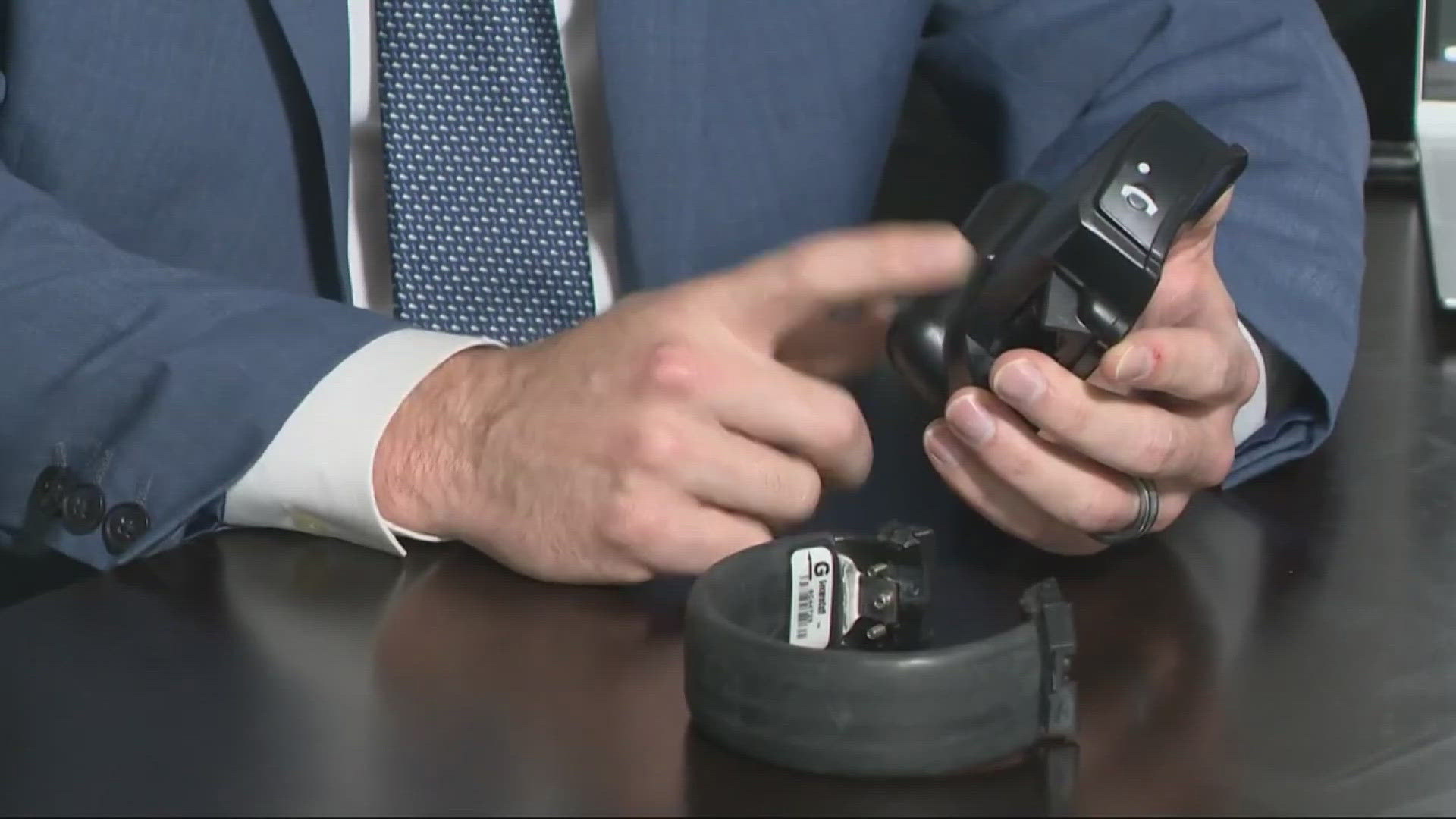SEATTLE — Elias Huizar, the former Yakima cop suspected of double homicide and child abduction, was under two restraining orders issued by the courts: one no-contact order with children and a protection order to keep him away from his ex-wife Amber Rodriguez and her kids.
Sadly, neither of those documents stopped Huizar from doing what he did.
"She definitely did not deserve to end her life the way it did, you know? Same as the other victim," said Samantha Deluna, the aunt of the 17-year-old who was killed named Angelica Santos.
It's a tragedy that could have been prevented, according to Washington State House Representative Lauren Davis, D-32nd Legislative District. She told KING 5 she is frustrated because she said the courts should have made Huizar wear a GPS ankle bracelet, a legal technology in Washington that she believes would have prevented this tragedy.
"It's infuriating," said Davis. "The court could have ordered that relief. And that would have put a barrier of protection around her workplace, that school, and she would have received early warning."
She added, "The perpetrator's ankle monitor actually talks in real time to an app on the victim's cell phone... So that she has adequate time to escape."
She said they are made to be tamper-resistant so that the perpetrator can't cut them off.
The technology became legal in 2020 in Washington when the Legislature passed the Tiffany Hill Act, an act named after the Clark County woman whose husband killed her in an eerily similar way, according to authorities.
"Tiffany was also murdered in the parking lot of a school while the perpetrator was waiting for her," said Davis.
Like Huizar, he too had violated a no-contact order after posting bail.
"And the entire utility of this technology is to prevent that exact sort of behavior. And it's highly effective at doing so. And we're not using it," said Davis.
Davis said she believes that is because of a lack of knowledge and familiarity with the technology across Washington's Superior, District, and Municipal courts.
She believes their high cost is not an excuse because a $2 million pot of money has been set aside for indigent perpetrators "to pay for this technology for them."
She continued, "And very little of that funding has been spent down, and so, money is truly not an object here."
Money truly is an object now, unfortunately, for a grief-stricken West Richland community where loved ones are preparing to bury two loving mothers.
"What we need right now is probably support for her funeral expenses right now," said Deluna.
If you'd like to help Angelica's family with their sudden funeral costs or Rodriguez's family, crowdfunding campaigns have been set up in their names.

